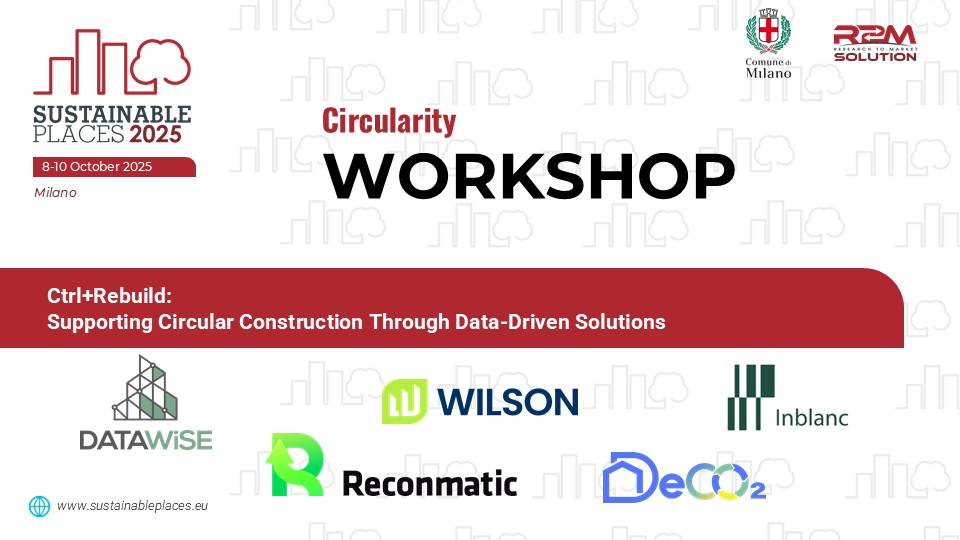Supporting circular construction through data-driven solutions

This workshop brought together five cutting-edge Horizon Europe projects — DATAWiSE, INBLANC, WILSON, DeCO2, and RECONMATIC — that tackled these systemic challenges with complementary, data-driven approaches. Together, they offered a unique ecosystem of solutions supporting integrated, interoperable, sustainable, and digitalised construction and renovation processes.
DATAWiSE focused on improving building operations and lifecycle decision-making using advanced analytics and AI. By integrating diverse data sources, it aimed to optimise energy use, comfort, sustainability, and risk management. Underpinning these services was a comprehensive data infrastructure designed for interoperability with external data spaces, ensuring scalability and real-world application.
INBLANC addressed fragmentation in the construction sector with an open ecosystem for seamless use of lifecycle data. The project introduced novel accumulation frameworks, digital logbooks, and deep integration with EU data spaces to enhance decision-making in renovation, energy planning, and facility management. Demonstrations covered use cases such as low-carbon renovation and urban integration.
WILSON explored decentralised data management through a data mesh architecture combined with digital twin technology. The project developed nine core innovations and twelve key exploitable results, including tools for predictive maintenance, biodiversity assessment, semantic renovation, and smart readiness indicators.
DeCO2 introduced a dynamic renovation framework centred on decarbonisation through social and policy innovation. With a user-centric, location-based approach, it leveraged local industrial ecosystems to promote symbiotic renovation processes. DeCO2’s digital tools accelerated the uptake of sustainable materials and Construction 4.0 practices across the value chain, fostering durable, policy-aligned partnerships for long-term impact.
RECONMATIC targeted lifecycle construction and demolition (C&D) waste management. Through automation and digital tools, the project improved data exchange, streamlined logistics, and enhanced decision-making for reuse and recycling. RECONMATIC aimed to reduce waste generation at the source and increase material valorisation, advancing the vision of a zero-waste construction sector by 2050.
The workshop followed a concise, interactive format, with short presentations from each project showcasing technical innovations, key challenges, early results, and lessons learned. A Q&A session invited the audience into a dynamic discussion on common barriers, collaboration opportunities, and strategies for scaling and replication. More than a project showcase, this session built bridges with municipalities, industry stakeholders, and other Horizon Europe initiatives around shared goals of circularity, digitalisation, and decarbonisation.
